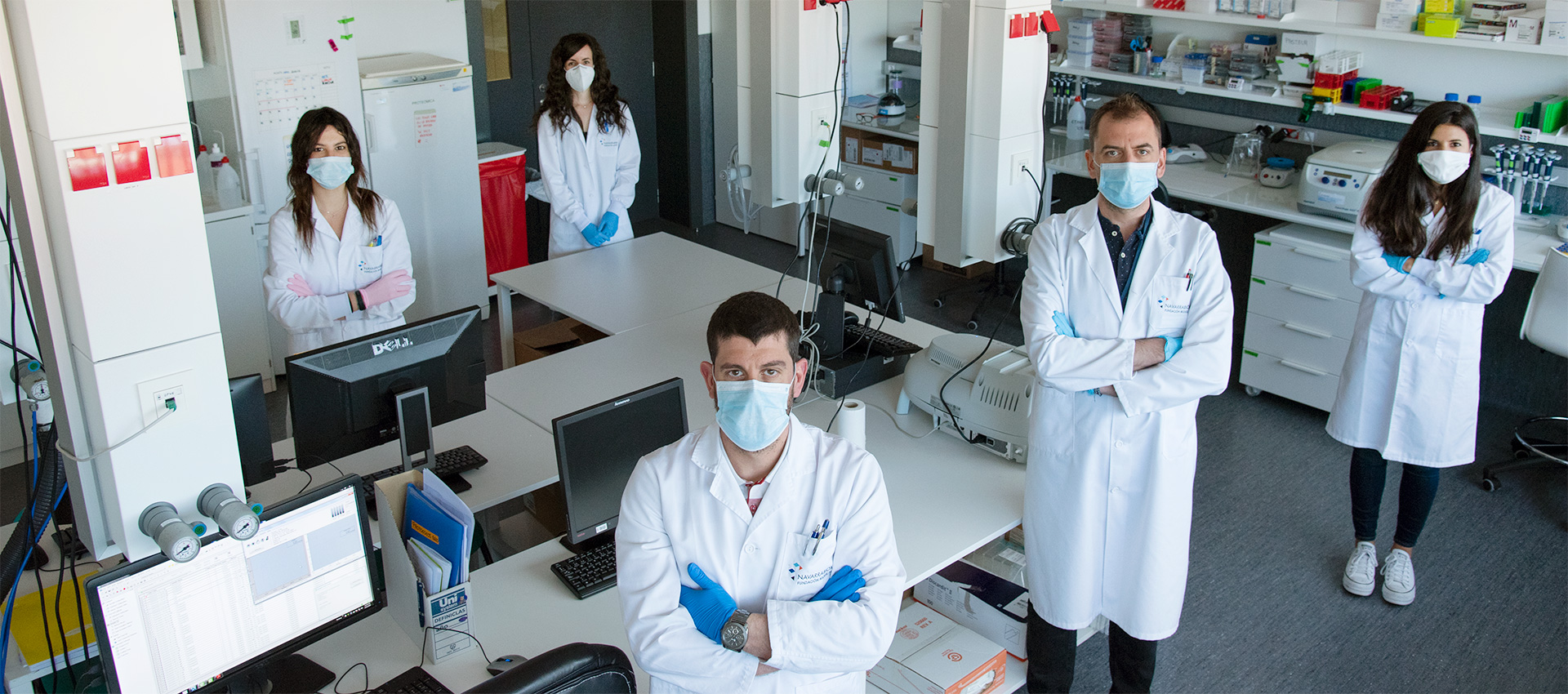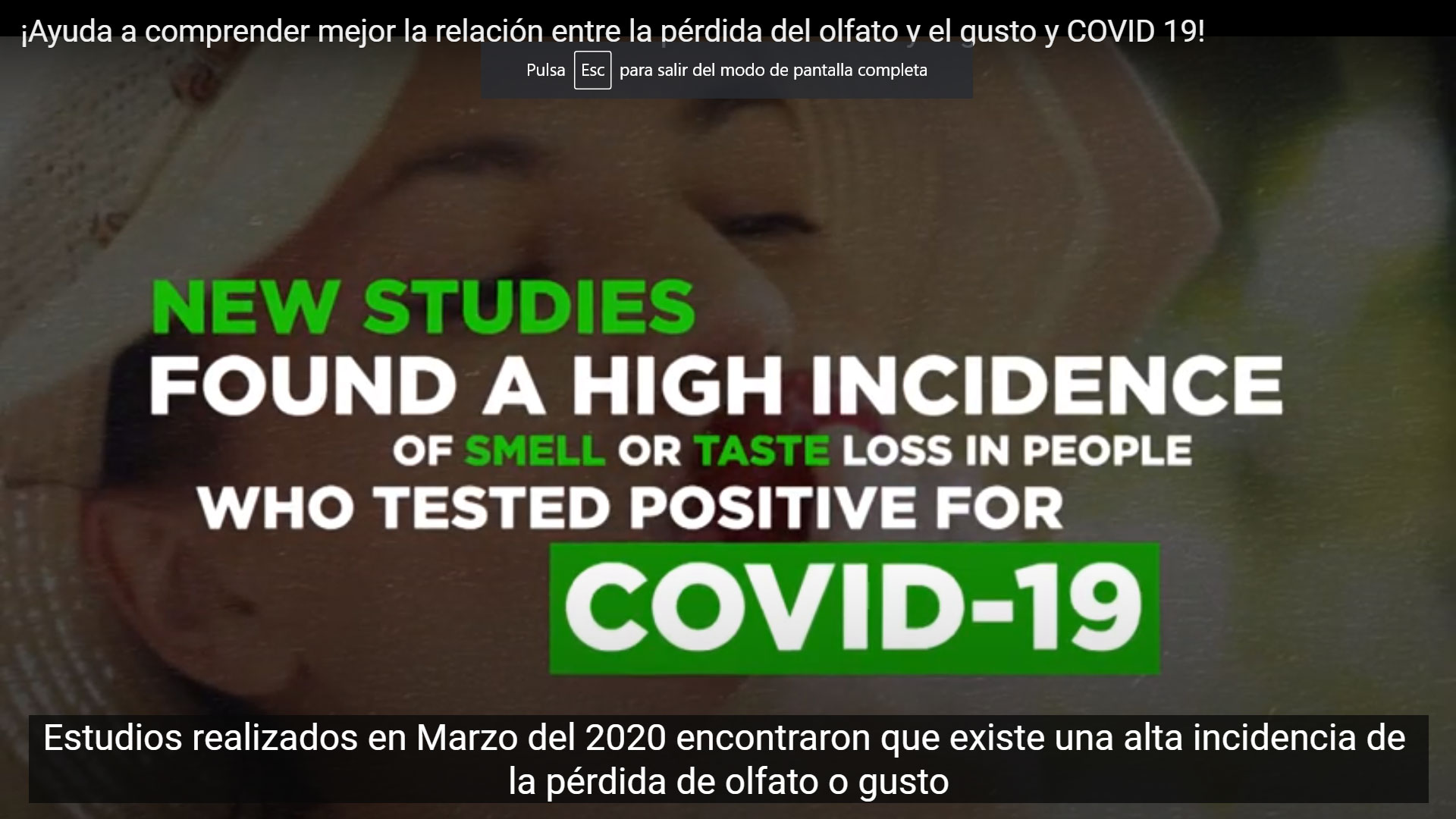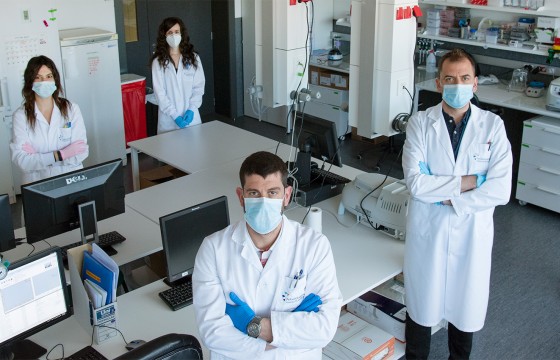
Navarrabiomed participates in international research project demonstrating loss of smell and taste in COVID-19 patients
• A consortium made of more than 600 professionals from 50 countries highlights the importance of confirming the diagnosis of people presenting with alterations in their capacity to smell and taste
Navarrabiomed is participating in an international research project that has confirmed that most people suffering from COVID-19 experience a loss of their sense of smell and/or taste. This initiative is part of an international consortium made up of more than 600 professionals from 50 countries.
Enrique Santamaría Martínez PhD, Head of the Navarrabiomed Clinical Neuroproteomics Unit, is responsible for leading the center’s participation in an international consortium that has confirmed the direct relationship between COVID-19 and anosmia (loss of the sense of smell) and the reduction in taste capacity in early stages of the disease. More than 600 professionals from 50 countries are collaborating on this study, whose findings may determine who is given diagnostic tests in new outbreaks.
On 7 April 2020, the Global Consortium for Chemosensory Research (GCCR) launched a massive survey with the aim of gathering sensory information on the ability to smell and taste of participants, people diagnosed with an objective test such as PCR or after clinical assessment no more than 15 days prior to responding to the survey. Among other variables, participants were asked to quantify their smell, taste and chemesthesis function (their capacity to smell, taste and perceive cooling, tingling and burning sensations in the mouth) before and while suffering from COVID-19 disease. They were also asked to mention any kind of nasal obstruction that had occurred.
The consortium obtained preliminary results 11 days later, on 18 April, and published the findings on 8 May in the free-access repository medrxiv.org. A total of 4,039 people from more than 40 countries filled out the survey and an analysis of the results indicates that smell, taste and chemesthesis were significantly reduced in patients diagnosed with COVID-19 disease. It is important to point out that nasal obstruction does not seem to be associated with these losses, which suggests that it may be an indicator for differentiating infection from SARS-CoV-2 from other viral infections such as cold and flu (which do produce nasal obstruction).
The reduction in the capacity to smell and taste may be taken as a distinctive characteristic of possible cases of COVID-19 arriving at hospitals and health centers and that require confirmation by means of a diagnostic test.
The project is different from previous studies on chemosensory abilities and COVID-19 because it proposes a massive international approach within a collaborative open-science framework. The study is led by Valentina Parma (Temple University, Philadephia, USA), John Hayes (Penn State, USA), Thomas Hummel (Technische Universität Dresden, Alemania), Steve Munger (Universidad de Florida, USA) and Danielle Reed (Monell Chemical Senses Center, USA).
Research in progress
The consortium has now received more than 37,000 responses and the survey is still active. Navarrabiomed encourages anyone who has recently suffered from a respiratory disease, including COVID-19, to go online to https://gcchemosensr.org/ and fill out the survey in one of the 29 languages available. “Patient participation is key for determining the symptomatology of SARS-CoV-2. Consortium committees are currently organizing specific research projects that will make use of all the information compiled in the GCCR initiative,” said Dr. Santamaría.
The Navarrabiomed Clinical Neuroproteomics Unit is interested in determining why COVID-19 patients lose their sense of smell. To answer this question, the Unit is collaborating with the group of Dr. David Escors (Head of the Oncoimmunology Unit, Navarrabiomed) in order to untangle the molecular mechanisms that are altered at the olfactory level by the SARS-CoV-2 virus.
“One of the coronavirus’s access routes is through the nasal cavity, which is why analysis of the “nose-brain” route could provide information on why strokes, seizures and encephalitis have been observed in some COVID-19 patients”.
Furthermore, according to preliminary results from the seroprevalence study carried out by the Spanish Ministry of Health and the Carlos III Health Institute, the loss of smell should not merely be considered an early symptom of COVID-19 disease, but also a predictor of immune response,” Dr. Santamaría said.
The Navarrabiomed Neuroproteomics Unit, in collaboration with public and private health institutions in Navarre, is currently working on the development and deployment of precision olfactory medicine, which, together with immunological analysis, will lead to more effective diagnosing and monitoring of the many diseases involving loss of smell, one of which is COVID-19.



